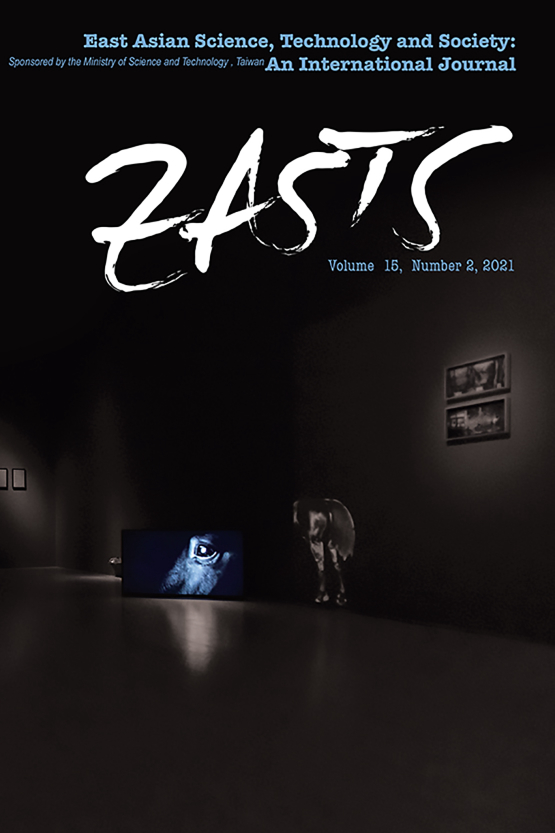Meet the Guest Editors:
Dr Giulia De Togni & Dr James Wright
The following interview delves into the insights of Dr Giulia De Togni and Dr James Wright, who are co-editors for the Special Issue in Focus: ‘Robots and Artificial Intelligence for Healthcare in Japan and South Korea’ from East Asian Science, Technology and Society: An International Journal. They discuss their inspiration, collaborative efforts, and findings in curating this Special Issue.
Both Dr De Togni and Dr Wright carry backgrounds specializing in Science and Technology Studies (STS) as well as Social Anthropology, with a particular focus on Japan. Their work converges in AI and robotics innovation in healthcare and its responsible and ethical deployment in the real world. Individually, their work has contributed in many significant ways to the fields of STS and anthropology including through publications and informing policy.
Scroll down to read their interview and what the Special Issue they curated will offer to scholars in the fields of Science and Technology Studies (STS), East Asian Studies and beyond.
Expand each tab below to read each Editor’s response.


Please introduce yourself, your area of study, and what led to the creation of this Special Issue.
Since 2019, I have been based at Edinburgh Medical School, initially as a Postdoctoral Research Fellow for the Wellcome Trust-funded project ‘AI and Health,’ and since 2022 as the Principal Investigator for my Wellcome Trust Postdoctoral Research Fellowship in Humanities and Social Science: ‘Techno-scientific Imaginaries of Socially Assistive Robots (SARs): A Comparative Study of How ‘Caring Machines’ Shape What It Means to Care.’ This project is a comparative study focusing on the development and use of socially assistive robots (SARs) for care practices in the UK and Japan.
Throughout the project ‘Caring Machines’, I established several international collaborations, particularly in Japan and South Korea. My interest in comparing the influence of different politics of innovation on the development and implementation of these technologies led me to notice compelling similarities (and differences) between the contexts of Japan and South Korea. James and I co-organized a series of panels at international conferences on this topic, which eventually led to the development of this special issue. EASTS was an ideal venue for this publication due to its focus on STS and East Asian studies. We are delighted to have collaborated with EASTS on this publication and greatly appreciate the support we received as editors.
Giulia and I have been in dialogue with the authors of this special issue for several years now, and this collection of papers is the fruit of several conference panels that we co-organized with them focusing on the use of robots and AI in healthcare in Japan and South Korea. We feel that EASTS is a natural home for this work, given the journal’s interdisciplinary intersection of STS and East Asian studies, as well as its academic rigour and the high quality of the research it publishes.
What unique aspects of healthcare robotics and AI development in these two countries make them a compelling focus for a dedicated special issue? Could you share what the article curation process was like?
As for my experience curating the papers included in this special issue, I particularly enjoyed reading and learning from my colleagues, especially those based in South Korea, as I was less familiar with that context before working on this collaborative project. The article curation process was smooth, thanks to the high-quality contributions we received and the valuable guidance from the EASTS editorial board. Overall, I thoroughly enjoyed co-editing this collection and am excited to see it published soon. I hope readers will also enjoy its content and that it will spark productive conversations on ensuring responsible innovation for these technologies.
At the same time, Japan and South Korea are not unique, as many other countries, particularly those in the global north, face similar challenges and share similar beliefs in the potential for technology to solve them, not least in this moment of generative AI hype. So we also see broader relevance in these studies beyond the two countries in focus.

You’ve contributed to this Special Issue with your article as well. What conclusions and interesting observations did you make in your paper, and what would you like readers to take away from it?
In the context of SARs and other AI and robotics technologies for care, in Japan (and elsewhere) there is a noticeable gap between the optimistic views of authorities and the lack of attention to the perspectives of intended users. In my paper, I problematize this and raise questions about the accessibility, affordability, and potential impact of these technologies on care practices. The study calls for the need of producing more qualitative research to address these questions and guide the development of care technologies before they are fully implemented.
A particularly stark example of the disconnect between the utopian rhetoric of AI ethics and the reality of the inequitable landscape of AI development can be seen in relation to gender. Despite the aspiration of overcoming boundaries of gender (as well as nationality, age, etc) espoused by the Social Principles for Human-Centric AI adopted in Japan’s national AI strategy, all nine program managers leading the government’s flagship ¥100bn (US$700m) Moonshot Research and Development Program are men. This disconnect between rhetoric and reality clearly does not exist only in Japan, as the global landscape of AI development and deployment remains highly inequitable in terms of gender and other characteristics, and needs to change in material terms for the ethical principles expressed and endorsed by governments such as Japan’s to go beyond simply an exercise in ethics washing.
What motivated you to take on the role of Guest Editor for this Special Issue, and what does your role entail?
Regarding my interest in curating this special issue, I recognized its significance as the first publication on the topic to bring together articles from experts in diverse fields such as science and technology studies, nursing, anthropology, and social policy. It critically explores how AI and related technologies like socially assistive robots (SARs) are envisioned to shape the future of health and social care in Japan and South Korea. Additionally, it examines how these technologies are being implemented and how different stakeholders from government, industry, and the third sector propose they should be regulated. This special issue offers novel cross-cultural comparative insights and innovative multidisciplinary empirical approaches to studying AI and SARs in the health and social care sectors while providing rich guidance on the policies that guide their governance in Japan and South Korea. As such it will be relevant to a range of scholars in Science and Technology Studies (STS) and East Asian Studies.
About the Journal
East Asian Science, Technology and Society: an International Journal (EASTS) aims to actively engage with the global STS community and to critically assess how science, technology and society are co-produced and mutually evolve. EASTS includes, but is not limited to, research articles, research notes, review articles, reflective essays, and book reviews.
